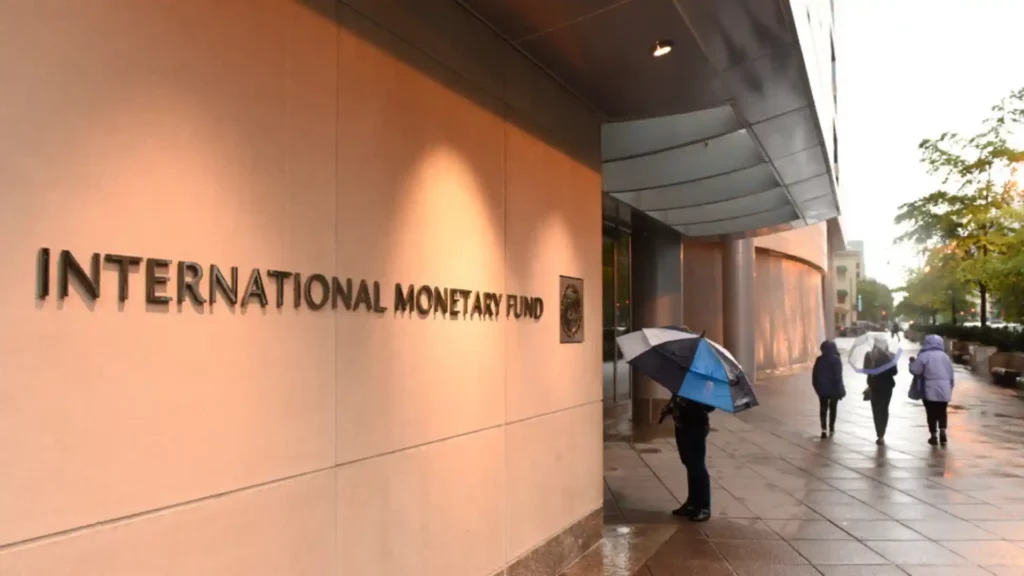The urgent need to revamp the system for sovereign debt restructurings becomes increasingly evident as traditional negotiations are being upended
In the corridors of global finance, a pressing concern looms large: the urgent need to revamp the system for sovereign debt restructurings. As financial leaders converge to address the deficiencies of the current framework, it becomes increasingly evident that traditional negotiations are being upended, particularly by China‘s emergence as a pivotal player in the arena.
The initiative to reform the so-called common framework, conceived during the tumultuous throes of the pandemic to aid impoverished nations in renegotiating their debts, has taken center stage at the recent International Monetary Fund (IMF) spring meetings in Washington DC. This initiative, spearheaded by the IMF and G-20 countries, aims to expedite debt restructurings, which have often left countries mired in default for years due to protracted negotiations.
Zambia, once hailed as the “guinea pig” for this new model, serves as a stark reminder of the challenges inherent in the current system. After three and a half years of arduous negotiations, Zambia finally struck a deal with its creditors, underscoring the need for swifter and more effective mechanisms.
United Nations Secretary-General Antonio Guterres minced no words in his condemnation of the system’s perceived ineffectiveness, citing Zambia as a poignant example. He decried the moral imperative of rectifying a system that perpetuates economic turmoil and exacerbates the plight of already vulnerable nations.
Despite a decrease in defaults and a plummeting risk premium for high-yield countries, emerging-market governments, excluding China, grapple with an estimated $421 billion in debt payments this year. This daunting figure, compounded by market volatility stemming from geopolitical tensions and the Federal Reserve‘s hawkish stance, underscores the imperative to expedite reforms.
Joe Delvaux, a money manager at Amundi SA, poignantly highlights the human toll of prolonged default periods, emphasizing that it is ultimately the people of these nations who bear the brunt of the crisis. As negotiations drag on, investors endure protracted recovery periods, exacerbating the socioeconomic ramifications for debtor nations.
The dynamics of debt restructurings have evolved significantly, with Wall Street and China wielding considerable influence in negotiations, displacing traditional creditors such as commercial banks and foreign governments. This shifting landscape has complicated negotiations, resulting in opacity and disjointed efforts among creditor groups.
David Grigorian, a former IMF and World Bank economist, aptly characterizes the current state of affairs as a “circus” of disparate negotiations, underscoring the need for cohesion and streamlined processes.
In the case of Zambia, China’s rejection of a proposed deal with bondholders underscored the complexities of navigating the debt landscape. Despite criticisms of the common framework’s shortcomings, Zambian Finance Minister Situmbeko Musokotwane defends its utility in fostering transparency and equitable treatment among creditors.
Kevin Daly, a portfolio manager at Abrdn Investments Ltd., echoes sentiments of discontent among creditors, lamenting the lack of comparability in treatment under the common framework.
The recent measures announced signal a potential turning point in the quest to integrate China into the debt restructuring framework. Notably, allowing the IMF to lend to countries amidst ongoing negotiations marks a departure from previous protocols, potentially expediting the resolution process.
Despite encouraging signs, including successful debt restructurings in countries like Suriname and a decline in risk premiums, lingering concerns persist. With China playing a pivotal role, there is apprehension that restructurings may merely delay repayment obligations, rather than provide sustainable solutions.
Mark Sobel, a former US Treasury Department official, cautions against the strategy of “extend and pretend,” emphasizing the imperative of addressing underlying debt overhangs to ensure long-term viability.
The imperative to overhaul the sovereign debt restructuring system is paramount for fostering global financial stability and mitigating the adverse impacts on vulnerable nations. As financial leaders deliberate on reforms, the human dimension of the crisis must remain at the forefront, underscoring the urgency of swift and equitable solutions.
